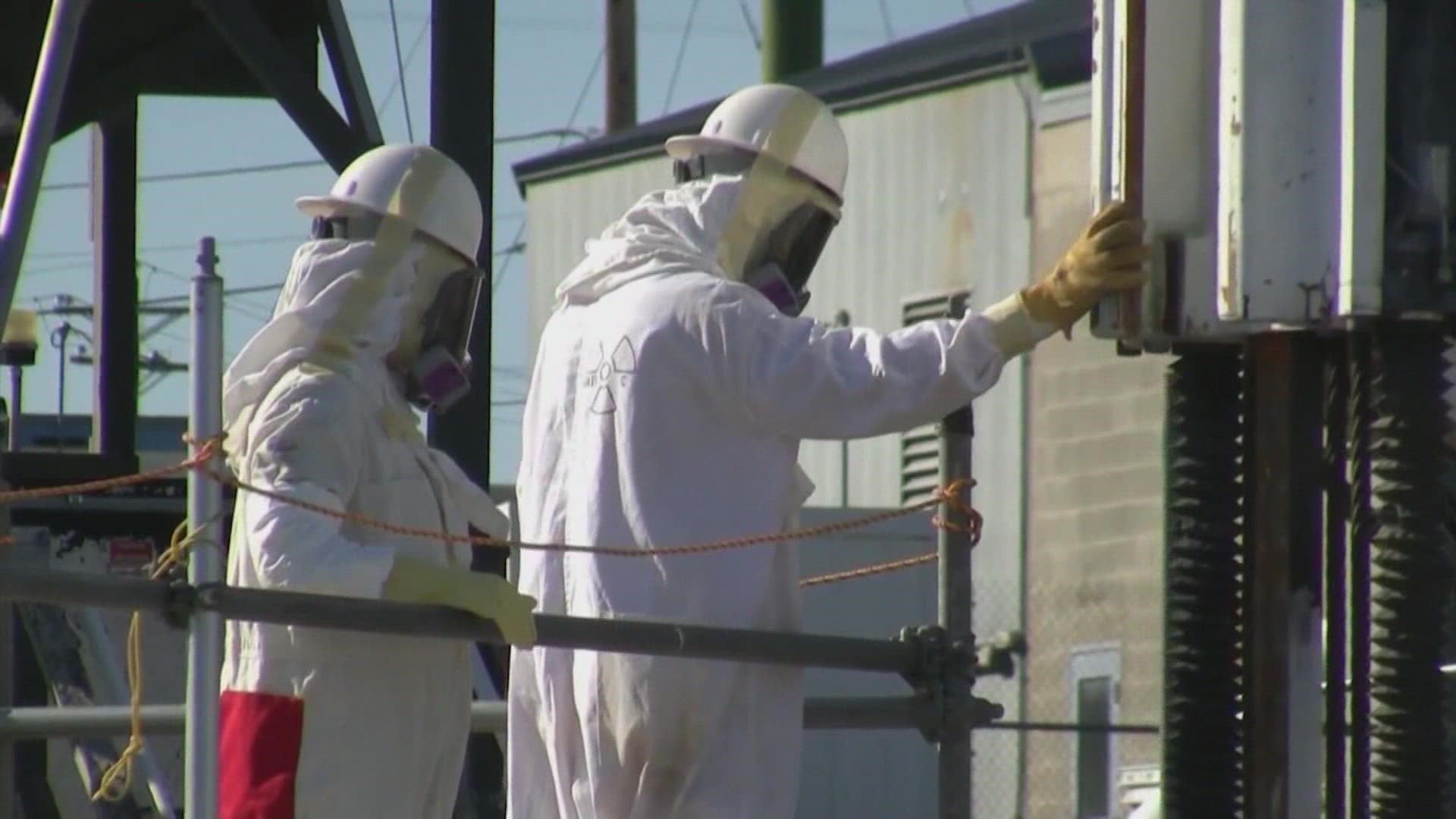Washington state’s U.S. senators on Wednesday urged the Department of Energy’s Inspector General to investigate the workers compensation program at the Hanford Site, responding to complaint by workers, union leaders and KING 5’s reporting that sick workers are being denied benefits.
Sen. Patty Murray, the No. 3 Democrat in the Senate, and Sen. Maria Cantwell, the ranking Democrat on the Senate Committee on Energy and Natural Resources, sent a letter to Acting Inspector General April Stephenson requesting that her office widen its ongoing OIG investigation at Hanford to include the worker compensation system.
“It’s about time. Somebody finally heard us, and I’m just so grateful,” said Melinda Rouse.
Rouse’s husband has been diagnosed with occupational induced dementia after working at Hanford for 19 years. The family’s been fighting to get a worker comp claim accepted for eight years.
“I’m keeping my fingers crossed that they’re finally going to get caught,” she said.
KING 5 reported on their case on February 27.
Staff members from Cantwell’s office traveled last month to the Tri-Cities to hear from workers and their spouses about a system the workers believe is rigged against them. The claims are filtered and managed by a private contractor, Penser North America.
“We have heard concerns from Hanford workers and labor unions about their experience with Penser inadequately addressing workers’ compensation claims following chemical vapor exposures,” wrote the Senators. “Multiple accounts of workers’ compensation claims being dismissed on arbitrary grounds, tactics bordering on intimidation, and actions taken to discredit claims have been shared with us. These allegations are very troubling and we urge the OIG (Office of the Inspector General) to take immediate action.”
The workers compensation system at Hanford is the focus of an ongoing KING 5 investigation, “Sick and Forgotten at Hanford.” The series has exposed unfair practices used to deny claims after Hanford workers get sick from exposure to toxic chemicals and heavy metals.
“Specifically, the OIG should investigate the treatment of workers and claims throughout the tenure of Penser’s contract with the Department (Dept. of Energy),” wrote the Senators.
Penser’s owner, Phil Valdens, said his company’s authority in the process has been exaggerated by KING 5. By law, only the Washington State Department of Labor and Industries can accept or reject a claim.
“Penser does not make arbitrary decisions on claims. We strive to look at each claim filed as an individual who is seeking assistance in the process,” said Valdens. “Penser DOES NOT have the authority to deny a workers’ compensation claim. You have made the focus of your investigation on an entity that is simply an administrator of an already established system.”
But state officials told KING they must rely on information submitted to them by Penser.
“I’m overjoyed that justice is being served and things are going in the right direction,” said Dave Aardal on Tuesday.
Aardal is a 44-year-old former Hanford who is suffering from the incurable and debilitating lung condition, chronic beryllium disease. Beryllium is a toxic metal and known carcinogen used in the manufacture of parts for nuclear bombs. Aardal worked in several locations at Hanford known to be contaminated with beryllium. Yet Penser and a government attorney waged a legal fight over Aardal’s claim that lasted years. The process left the family broke.
“I felt like a lone gazelle surrounded by a pack of hyenas when the process started,” said Aardal.
Aardal won his case on appeal, but in the end did not get the disability pay he was seeking after a Penser-hired medical examiner determined he was well enough to hold down a job as a security guard. In addition to chronic beryllium disease, Aardal was recently diagnosed with colon and lung cancer.
The Washington state legislature is also working to improve the worker compensation process for Hanford workers. State Rep. Larry Haler (R-Richland) sponsored HB 1723, which would give Hanford workers a presumption of occupational illness for certain conditions such as toxic encephalopathy (dementia) and lung disease. The bill passed the House last week and is now in the hands of the state Senate’s Labor, Commerce and Sports Committee, which is chaired by Sen. Michael Baumgartner (R-Spokane).


